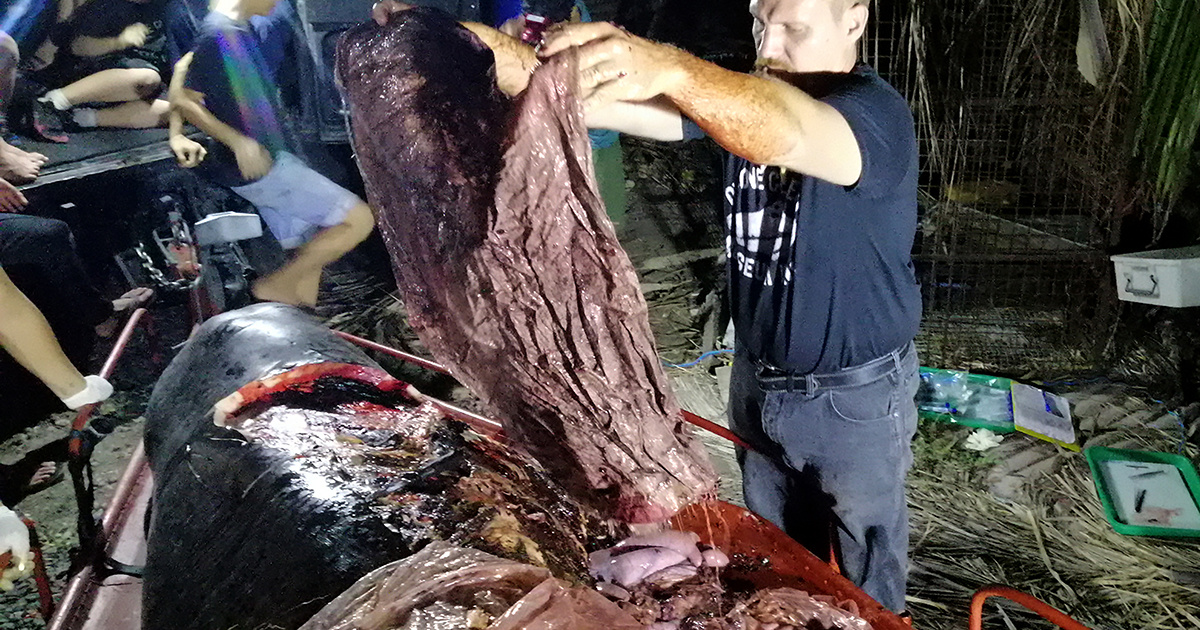

D'Bone Collector Museum head Darrell Blatchley shows plastic found inside the stomach of a Cuvier's beaked whale in the Philippines this weekend. - / AFP / Getty Images
Yet another whale has died after ingesting plastic bags. A young male Cuvier’s beaked whale was found washed up in Mabini, Compostela Valley in the Philippines Friday, CNN reported. When scientists from the D’ Bone Collector Museum in Davao investigated the dead whale, they found it had died of “dehydration and starvation” after swallowing plastic bags―40 kilograms (approximately 88 pounds) worth of them!
“This whale had the most plastic we have ever seen in a whale. It’s disgusting,” the natural history museum said in a Facebook post Sunday. “Action must be taken by the government against those who continue to treat the waterways and ocean as dumpsters.”
Museum staff said they found 16 rice sacks, for “banana plantation style bags” and several shopping bags in the whale’s stomach.
“I was not prepared for the amount of plastic,” D’ Bone Collector Museum President and Founder and marine scientist Darrell Blatchley told CNN.
This is only the most recent incident in which a whale has died after ingesting massive amounts of plastic. In November of last year, a sperm whale washed up in Indonesia with 13 pounds of plastic in its stomach. Another, a pilot whale, died in Thailand in June of 2018 after ingesting 17 pounds of plastic, including 80 plastic bags.
Blatchley explained to CNN one reason why plastic is such a big problem for cetaceans, including dolphins and whales. The marine mammals get all of their water from the food that they eat, so when plastic blocks their ability to eat large amounts of food, they die of thirst as well as hunger.
Blatchley told The Guardian he had examined 57 whales and dolphins who had died because of consuming plastic in 10 years.
“Hundreds of thousands of whales, dolphins, seals and turtles are killed by ocean plastic pollution every year, including single-use plastics and abandoned plastic gear from the fishing industry,” World Animal Protection campaigner Peter Kemple Hardy told CNN.
Hundreds of thousands of #animals are killed by ocean plastic pollution every year, including single use plastics and #ghostgear. This is a tragic reminder that we must work together towards global solutions to plastic waste from being left in the ocean https://t.co/RubPVhPSzF
— World Animal Protection UK (@MoveTheWorldUK) March 18, 2019
- Whale's Tragic Death by Plastic Bags a Reminder of a Global Crisis ...
- 40-Ton Sperm Whales Killed by Plastic Bags in Mediterranean ...
- Hundreds of Fish Species, Including Many That Humans Eat, Are Consuming Plastic - EcoWatch

 233k
233k  41k
41k  Subscribe
Subscribe 